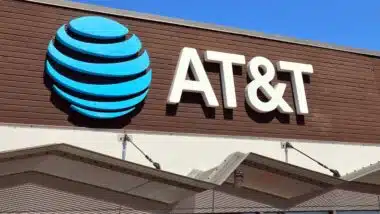
American consumers have become accustomed to bank fees. In 2019, big banks charged $11.7 billion in overdraft fees, and so far this year they’ve brought in $10 billion in fees tied to coronavirus small business loans, Business Insider reports.
A bank fee that receives less attention—but is no less of a nuisance—is the foreign transaction fee. A number of financial institutions, including Arkansas-based Arvest Bank, are currently being investigated for foreign transaction fee practices.
What is Arvest Bank?
Arvest Bank is the largest bank in Arkansas — though it’s still considered a “small” bank, in that it holds $14 billion in assets compared to the big four — Citigroup, Wells Fargo, JPMorgan Chase, and Bank of America — which are in the trillions, according to financial website TheStreet.com.
Arvest Bank’s owners, however, are anything but small. The Walton family, owners of Walmart, the world’s largest retailer, also own and run Arvest.
What is a Foreign Transaction Fee?
A foreign transaction fee — also known as a “foreign purchase transaction fee” or sometimes a “foreign currency transaction fee” — is charged by a bank when a consumer uses a credit or debit card to make a purchase or withdrawal in a foreign currency.
Foreign transaction fees typically range between 1% and 3% of the transaction. While this can seem like an inconsequential amount, adding 3% to every foreign transaction adds up quickly, particularly when you consider that many foreign purchases (such as a foreign hotel booking) are expensive, and travel can incur a number of purchases.
When Do You Have to Pay an Arvest Bank Foreign Transaction Fee?
While customers may expect to be charged a foreign transaction fee when traveling outside the country and making purchases or withdrawing cash from ATMs, many consumers may not be aware that these fees may be charged when making online purchases as well.
Foreign transaction fees are among those assessed by Arvest Bank. According to the bank’s cardholder agreement, an Arvest foreign transaction fee will be incurred when a transaction is made in a foreign currency or made in U.S. dollars but processed outside the U.S.
The agreement specifies that foreign transactions include “online transactions made in the U.S. but with a merchant who processes the transaction in a foreign country.”
Notably, Arvest Bank offers its customers a work-around by marketing credit cards with no foreign transaction fee.
Arvest Flex Rewards credit cards do not charge a foreign transaction, but its True Rate and Origin cards carry a 3% transaction fee.
 Why Would a Domestic Purchase Incur a Foreign Transaction Fee?
Why Would a Domestic Purchase Incur a Foreign Transaction Fee?
Essentially, foreign transaction fees are imposed by the issuer of the credit card. These fees cover overseas credit and debit card transactions. The key is that the foreign vendor may process the transaction in their local currency.
A hint that a website might charge a foreign transaction fee is if you see prices listed on a website in foreign currency.
Foreign transaction fees are frequently charged on purchases made on foreign websites, even if the buyer is in the U.S., as well as on websites that host foreign sellers, such as Amazon. The same goes for using a U.S. website to book international travel, including flights or hotels. If the foreign hotel or airline is processing the transaction, you may still be hit with a foreign transaction fee.
Other common occasions when a foreign transaction fee may be charged include booking cruise ship accommodations or donating to a charity that is based outside the U.S.
You may be able to avoid these fees by ensuring that you only make purchases from online retailers that process transactions within the U.S. Unfortunately, it may not always be easy to determine whether an online retailer processes transactions in the U.S. or in foreign countries.
While it may be possible to look up the retailer you want to do business with in order to determine where the company is located, not every company makes this information readily available. Some consumers have reported that even after investigating a company online, it is difficult to tell where their transaction will be processed.
The easiest way to avoid an international transaction fee, whether you’re in the U.S. or traveling abroad, is by getting a card that does not charge this fee.
Filing a Foreign Transaction Fee Lawsuit
Some consumers claim that foreign transaction fees are legally only allowed on purchases made when the cardholder is physically outside the U.S. Charges for online purchases while the cardholder is in the U.S., they argue, are not valid.
More and more banks are facing legal action by consumers who allege that foreign transaction fees on credit and debit card purchases made while in the U.S. are illegal.
Whether or not these fees are legal may depend on the wording in your bank’s policy. Many banks have policies stating that foreign transaction fees will be assessed on foreign purchases, and do not specify that foreign purchases may include purchases made from within the U.S. In these cases, consumers who have been hit with unexpected fees from Arvest Bank or another financial institution may be able to speak with a qualified attorney and determine whether they are eligible to pursue reimbursement and compensation.
If you have been the victim of an improper Arvest Bank foreign transaction fee on a purchase made in the U.S. through a foreign website or merchant, or a similar fee with another bank, you may be able to file a lawsuit and pursue compensation.
A number of banks are under investigation by law firms across the country for foreign transaction fee practices, including:
- Arvest
- HSBC
- Glacier
- Centerstate
- Washington Trust (RI)
- Valley National
- Liberty Bank (CT)
- UMB
- Central Pacific
- PSECU
Filing a lawsuit can be a daunting prospect, so Top Class Actions has laid the groundwork by connecting you with an experienced attorney. Consulting an attorney can help you determine if you have a claim, navigate the complexities of litigation, and maximize your potential compensation.
Join a Free Foreign Transaction Fees Class Action Lawsuit Investigation
If you were charged a foreign transaction fee on a debit card or credit card purchase made on a foreign website, you may qualify to join this foreign transaction fees class action lawsuit investigation.
This article is not legal advice. It is presented
for informational purposes only.
ATTORNEY ADVERTISING
Top Class Actions is a Proud Member of the American Bar Association
LEGAL INFORMATION IS NOT LEGAL ADVICE
Top Class Actions Legal Statement
©2008 – 2026 Top Class Actions® LLC
Various Trademarks held by their respective owners
This website is not intended for viewing or usage by European Union citizens.














